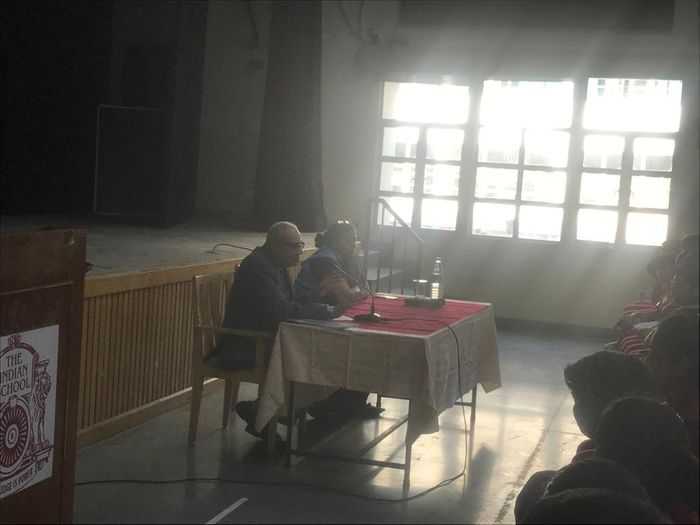Interaction with School chairman on Indias Reservation Policy- classes 8 and 9
On Thursday, 27 December 2018, students of classes VIII and IX were accorded another opportunity to interact with School Chairman, Mr. Prafull Goradia on the topic Reservation Policy in India.
Mr. Goradia shared his thoughts on the reservation policy in India saying that it hasnt led to much progress; it has benefitted a few families. He believes that Hindus tend to promote themselves upwards, i.e. to climb up to the higher rungs of the ladder of the caste system and those, who are at the bottom generally blame karma not society.
The charismatic speaker took his fascinated audience down memory lane as he unfolded the reservation saga in India. In the early 20th century, Shahu the Maharaja of Kolhapur introduced reservations in favour of non-Brahmin and backward classes. Later, at the Round Table Conference of 1932, the then Prime Minister of Britain, Ramsay MacDonald proposed the Communal Award, according to which separate representation was to be provided for Muslims, Sikhs, Indian Christians, Anglo-Indians, and Europeans. The Depressed Classes, roughly corresponding to the STs and SCs, were assigned a number of seats. These seats could be filled by election from the special constituencies in which only they could vote. However, they were eligible to vote in the general constituencies as well.
[gallery link="file" order="DESC"]
Mr. Goradia called B.R. Ambedkar the greatest Hindu of the 20th century. He discussed the Poona Pact of 1932 between Ambedkar and Gandhi. After independence in 1947, there were some major initiatives in favour of the STs and SCs. In 1954, the Ministry of Education suggested 20 per cent reservation for SCs and STs in educational institutions with a provision to relax minimum qualifying marks for admission by 5 per cent wherever required. In 1982, it was specified that 15 per cent and 7.5 per cent of vacancies in the public sector and government-aided educational institutes should be reserved for the SC and ST candidates, respectively.
Meanwhile, the OBCs gained prominence in the eighties. Mr. Goradia described his experiences during the period of the Mandal Commission. The commission's report recommended that a reserved quota of 27 percent for OBCs should apply in respect of services and public sector bodies operated by the Union Government. The announcement came at a time of rising inflation and unemployment. The affected segment of the population took to the streets in agitation, some even set themselves on fire to protest against the Commission.
Our students were excited to ask questions and share their opinions. Mr. Goradia answered their questions and also talked a bit about his experience during the Emergency in 1977. On being asked about jobs, Sir suggested that one must try to be self-reliant. He mentioned entrepreneurship and hinted that he might have a talk on the same in the near future! The students were pleased with Mr. Goradias response to their questions and looked forward to interacting with him again.
The session was delightful and as always, captivated the audience!
Aadrita Goswamy, IX-D.













